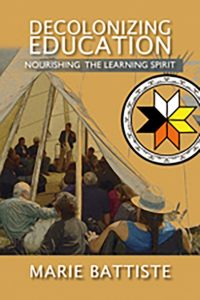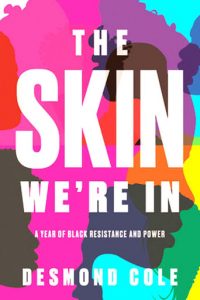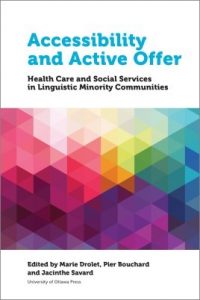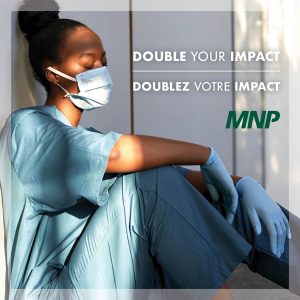Hope is bulletproof: We, at NOSM, have hope.
Posted on December 1, 2020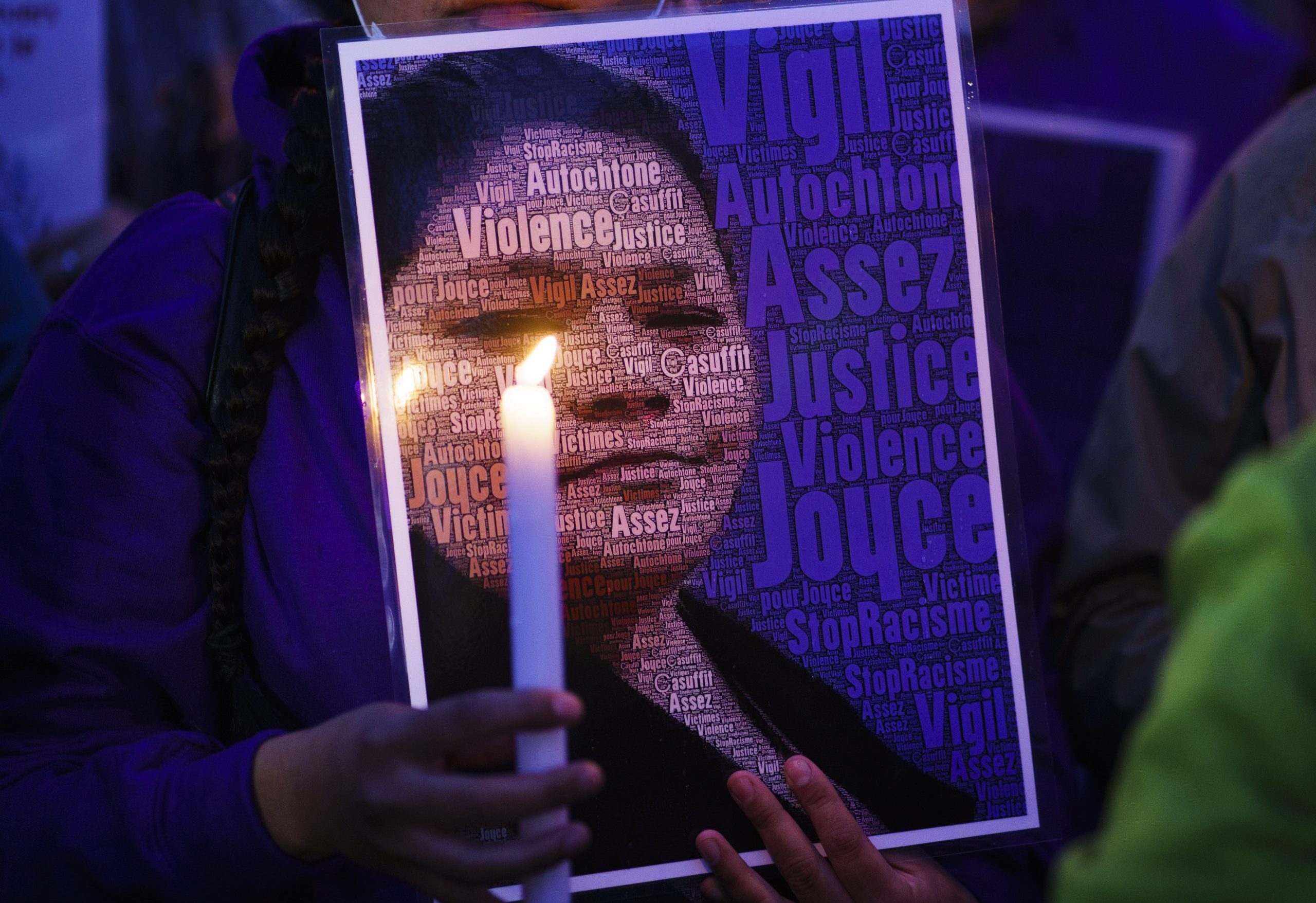
An Urgent Meeting to Address Racism Experienced by Indigenous Peoples in Canada’s Health Care Systems, organized by Indigenous Services Canada, was recently hosted with nearly 400 participants. This deeply influential meeting was occasioned by the videos of the racism experienced by Joyce Echaquan while seeking health care prior to her death.
Many speakers highlighted the pervasiveness of racism in our health care and health-education systems. The most gripping testimony was that of the family of Joyce Echaquan. Many Indigenous leaders, Indigenous physicians, medical students, nurses, and other health-care professions spoke eloquently. Some were from NOSM, including Dr. Kona Williams, NOSM Assistant Professor, and Dr. Lana Potts, NOSM charter class graduate.
The accounts of racism experienced in receiving health care are disturbing and unacceptable. Many of the stories shared are profound, agonizing, and sadly true. From Brian Sinclair to Joyce Echaquan, and recently exposed personal health-care records used as evidence in the trial for the death of Barbara Kentner, it is clear that we must fight racism at all levels.

Another area of grave concern for our medical school is the racism experienced in medical education. A JAMA Internal Medicine study of more than 27,500 medical students in 2016/17 found that 38 per cent of students nationwide from racial and ethnic groups that are under-represented in medicine reported mistreatment—including students who are Black, Latino or Native American. That is compared to only 24 per cent of white students across the U.S. who said they had been mistreated during medical school. A report by the Indigenous Association of Physicians of Canada (IPAC) also spoke about Indigenous medical students experiencing dreadful racism and bullying in school.
In a recent online coffee chat, 48 BIPOC students joined me in an open conversation where some described upsetting experiences in medical school. What was shared with me in that session was very clear examples of overt racism. The kind of mistreatment and humiliation our students have experienced should never occur and must stop. More disturbingly, we have seen physicians and even students among us who have (under the guise of freedom of speech) expressed opinions that are simply unacceptable to us and to our values, yet we have been remiss in addressing them. Well… not anymore.
A health system with a culture of quality is one that is safe, effective, patient-centred, efficient, timely and equitable. These six dimensions described by the Institute of Medicine have been adopted by Health Quality Ontario (HQO) as part of its overarching quality framework, described in the HQO report entitled Quality Matters: Realizing Excellent Care for All.
A health system that is functioning and values equity, diversity and inclusion means that we must all engage in an intersectoral, connected approach and stop working in silos.
Health inequities are the result of poverty, structural racism, and discrimination. Health systems are just one cog in the wheel of the health inequity issue, but the role they play in the problem is a big one. NOSM will advocate for intrapersonal, interpersonal, institutional, and systemic mechanisms (i.e., structural inequities) that organize the distribution of power and resources differently across lines of race, gender, class, sexual orientation, gender expression, and other dimensions of individual and group identity. We expect that health systems will deal with the unequal allocation of power and resources—including goods, services, and societal attention—which manifests itself in unequal social, economic, and environmental conditions (i.e., determinants of health).
We have to recognize that racial and ethnic minorities in society are disproportionately affected by poor quality of health care. We must also recognize that there are racial/ethnic differences in access to care, in who receives needed medical care, and in who receives life-saving technologies. How care is offered and received is not only determined by system-level factors or individual physician behaviour, we know that patient race/ethnicity has been shown to influence physician interpretation of patients′ complaints and ultimately clinical decision-making, for example, whether or not to refer patients for particular treatments or procedures.
There are five ways in which NOSM is making health equity a core strategy:
- It is a leader-driven priority where we as health-care leaders articulate, act on, and build the vision into our values.
- We are developing structures and processes that support equity—a new Associate Dean Equity and Inclusion, the Respect the Difference movement, a commitment to curricular renewal, and a reform of our admissions to address EDI and accessibility to medical school.
- We are taking specific actions that address the social determinants of health that include Indigenous, Black and Francophone realities; also addressing the Calls to Action of the Truth and Reconciliation Commission where we have much work to do.
- We are confronting institutional racism within the organization to identify, address, and dismantle the structures, policies, and norms that perpetuate race-based advantage. We will protect our students, staff and faculty against racism.
- We are partnering with communities and socially responsive organizations who are leading in the social justice movement with metrics of success.
This is a critical time for change, one that NOSM is proud to collaborate, facilitate, and lead. As a medical school, we acknowledge the significance, strength and innovation of equity, diversity and inclusiveness in medicine and will boldly implement a culture of anti-racism at all levels of the School.
Please join us and learn more on the Respect The Difference website.
Thank you, miigwetch, merci to all.
Please continue to follow my journey on Twitter @ddsv3 using #WhereisDrVerma.
I welcome input on this blog and other issues you want to bring to my attention by email to dean@nosm.ca.
Learning Opportunities
The Indigenous Cultural Safety Learning Series provides a platform to address a broad range of issues related to the ways in which Indigenous people experience and intersect with systems (i.e., health care, justice, education, and child welfare). While promoting interesting and relevant dialogue, the Series encourages critical thinking by bringing people together to consider social justice issues and engage in critical enquiry. The webinars are interactive by design and provide a much-needed space to address and navigate the complex nature of Indigenous specific racism and discrimination while also promoting advocacy and empowerment.
The Hearing Our Voices, An Indigenous Women’s Reproductive Health Curriculum is designed to communicate the experience of Indigenous women in their own voices to residents and other health care and allied health care practitioners who care for Indigenous women in a reproductive health capacity.
Giving Tuesday
Many of us have been there; a sudden crisis hits and we are not sure if we can pay rent, afford the Internet bill, or buy groceries. This pandemic has created this challenge for many of our students. With 92 per cent of our students receiving financial aid, they need a support system when they are faced with family emergencies, personal challenges or unforeseen expenses. Without your support, the consequences to student mental health can be devastating. The Student Emergency Fund supports students who have nowhere else to turn. This year, our partner MNP will again double your gift, matching your donation up to $5,000! That means making an even bigger impact on the lives of our NOSM learners. Give today.
Accreditation Visit in December
UME accreditation carries on with the next virtual visit of the CACMS team on December 4, 2020. There are several areas that will be discussed in dedicated meetings with NOSM students, Education Deans and leaders. We will not receive our transmittal letter until June 2021, but we should have feedback on the visit in the new year.
December Whole-School Webinar
There will be a pandemic update and seasonal whole school webinar on Tuesday, December 15, 2020 from 8:00 – 8:30 a.m. NOSM students, faculty and staff will receive an email with an invitation. In the meantime, stay strong. I know this latest ‘surge’ and the ongoing challenges of extended public health limitations are wearing us all down. Please take care and reach out to us if things are getting harder. We genuinely care.

NOSM Announces Dr. Edward Hirvi as Section Co-Chair, Family Medicine (West)
The Northern Ontario School of Medicine has named Dr. Edward Hirvi as the new Section Co-Chair, Family Medicine, beginning December 1, 2020. Dr. Hirvi wears many hats in the field of medicine. He has been a faculty member with NOSM since January 2009, and holds the current rank of Associate Professor. Located in Sault Ste. Marie, Dr. Hirvi is a Family Physician at the Group Health Centre in Sault Ste. Marie. He is the co-chair of the Northern Ontario Academic Medicine Association, and President of the Physician Clinical Teachers’ Association (PCTA). Congratulations, Dr. Hirvi! A special thank you to co-chair Dr. Barb Zelek for your leadership and commitment to the role. Dr. Zelek commenced her new position as NOSM’s Division Head, Clinical Sciences on September 1, 2020. Dr. Anjali Oberai will continue in her role as Section Co-Chair (East), Family Medicine.
 |


